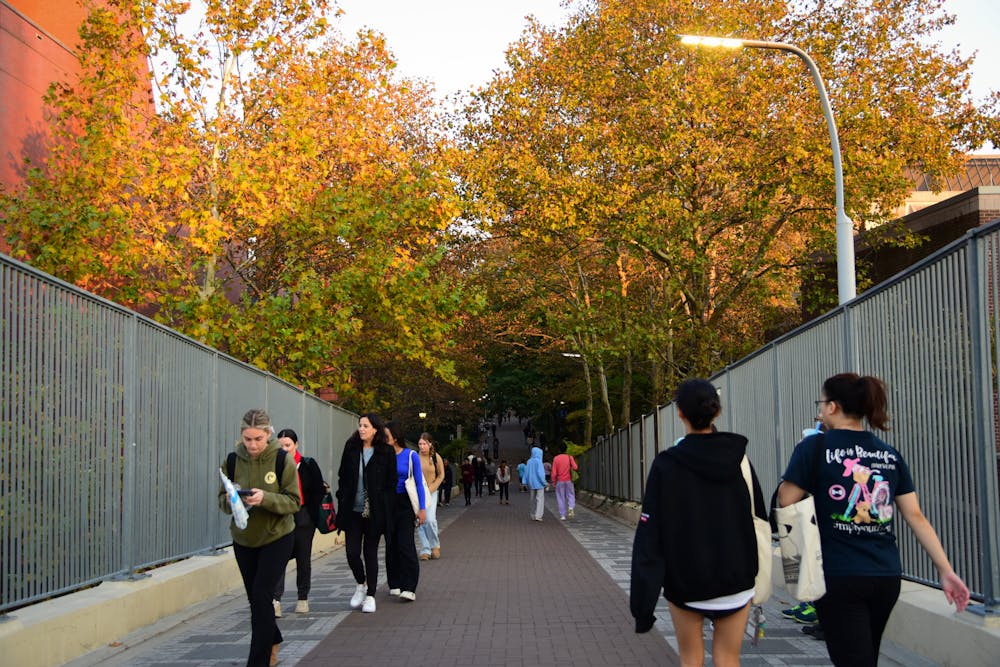
Penn students established an online civic platform called Crayon Politics, aiming to bridge the disconnect between voters and politicians by providing accessible political information.
Wharton junior Chuby Madu co-founded Crayon Politics with the goal of communicating political information in a concise and simple manner. The nonpartisan platform provides resources on political topics, elections, and the legislative process.
“A lot of people don't go out of their way to become informed because it feels like a task, so we’re working to reduce the task and make it easier to understand political information," Madu said.
Madu said that the idea for Crayon Politics began after he perceived a disconnect between citizens and politicians over the United States' response to the Israel-Hamas war in October 2023. In addition to responding to a mismatch between legislation and public opinion, the platform seeks to address address the spread of misinformation and excess political information.
According to Wharton and Engineering sophomore Daminika Sobal, who is also the head of recruitment and a data analyst for Crayon Politics, it was difficult to find people to develop the website.
“Engineers aren’t usually into impact projects,” Sobal said. “But people more interested in business and politics usually lack the technical skills, so finding developers was a bit of a challenge.”
Crayon Politics was able to launch its website under the guidance of Madu and co-founder and Wharton junior Chino Anyadiegwu. The team also recruited UX designer Akila Kumar to help achieve the startup’s goals.
“We want to help people vote more on what candidates have done instead of said,” Kumar said. “So we decided to focus on candidates’ legislative action histories on a few core issues.”
The startup identified central issues using a 200-person survey conducted last May, which asked Penn students about the most critical issues of the 2024 presidential election. Based on the survey results, Crayon Politics decided to initially highlight the Israel-Hamas war, climate change, and reproductive rights on its website.
Crayon Politics also plans to utilize newsletters and blog posts to help break down political information in a way that is more accessible. According to Madu, these posts will be short and simple editorial pieces, in contrast to political reporting from mainstream media outlets that Madu says can be hard to read.
The written component of the site will feature not only writers from Penn, but also writers from Harvard and other universities.
“I think [Chuby] made the right decision by wanting to include a blog featuring a lot of college talent,” Kumar said. “I think the word can spread on other college campuses if we have contributors from different universities.”
Moving forward, Madu said that the platform hopes to expand its focus by shifting the content of the website from the presidential election to more local politics. Currently, the team is working on incorporating data for the U.S. Senate and House elections into the website, with plans to expand to even more localized politics.
“We hope this will empower people to go to their local offices, because a lot of people don't understand that’s really when the change most directly impacts you," Madu said.
The Daily Pennsylvanian is an independent, student-run newspaper. Please consider making a donation to support the coverage that shapes the University. Your generosity ensures a future of strong journalism at Penn.
Donate



